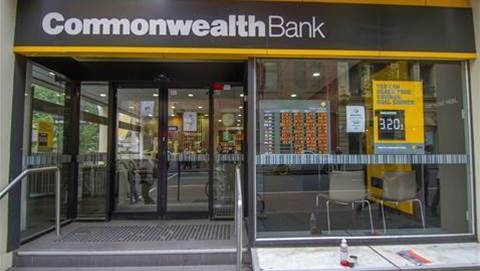The Commonwealth Bank of Australia has copped a major serve from the Governor of the Reserve Bank of Australia over the slow pace on enabling core New Payments Platform functionality amid growing frustration major institutions are stalling the rollout.
In a rare public admonition at an institutional level, Dr Philip Lowe said even though there was now more than $1 billion a day flowing through the NPP, there was still concern over the level of progress at Australia’s largest bank.
"I expect that we will see a further pickup in usage once the CBA has delivered on core NPP functionality for all its customers," Dr Lowe said at the AusPayNet Summit in Sydney.
"The slow implementation has been disappointing and we expect the required functionality to be available soon."
The sharp criticism from the head of Australia’s central bank is certain to send shudders through other institutions who are still struggling with implementing parts of NPP’s real time functionality onto older core banking systems that are still batch driven.
Ironically, the CBA was the first of Australia’s major institutions to start moving to a real-time core banking platform for its underlying infrastructure, a point that will not be lost on the payments regulator.
Despite this investment, the NPP is only available the CBA’s main consumer banking app, not its popular Netbank online banking service customers have flocked in droves to conduct their financial affairs.
The RBA’s comments follow the NPP sharply increasing pressure on banks to spur adoption through the publication of its roadmap, which effectively sets deadlines for the availability of functionality and the imposition of fines for laggards.
Notably, the RBA Governor specifically called out the penalty regime.
“The first roadmap was published back in October, and [NPP overseer] NPPA … also introduced a mandatory compliance framework.
"Under this framework, NPPA can designate core capabilities that NPP participants must support within a specified period of time with penalties for non-compliance.
"This is a welcome development supported by the Payment System Board,” Dr Lowe said.
CBA responds
With retail banks increasingly under fire from regulators on all sides, the CBA on Tuesday afternoon opted to take its medicine rather than fight its corner.
“We acknowledge that we were slower than our major competitors in rolling out the ability for our customers to make payments via NPP," a CBA spokesperson said, adding that the bank had "progressively rolled out new services" over 2019 that would lead to a "substantial increase in payments" by its customers across the NPP.
“We have been working closely with the RBA and the NPPA to ensure that the New Payments Platform is a success. CBA’s priority was initially to make it possible for our retail customers to send and receive payments via NPP," the CBA spokesperson said.
"We were the first major bank to make PayID NPP payments available to all our retail customers via the CommBank app from February last year, and we now have more than 1.4 million registered payees using the NPP."
According to CBA, that number translates to "nearly 40 percent of all users and the highest proportion of any financial institution using the platform by a significant margin."
The disconnect with Netbank, it appears, stems from CBA's decision to push NPP out to its mobile app first before plugging in its longstanding internet banking platform.
"We initially prioritised mobile banking as this is the most popular banking channel for our customers," the CBA spokesperson said.
"Our priority has been to ensure that new capability is added in a safe and secure manner without compromising the customer experience.
"Since March 2019, we have seen a six-fold increase in payments made by CBA customers via NPP, and these will continue to grow as functionality expands in coming months.”


.jpg&h=140&w=231&c=1&s=0)























